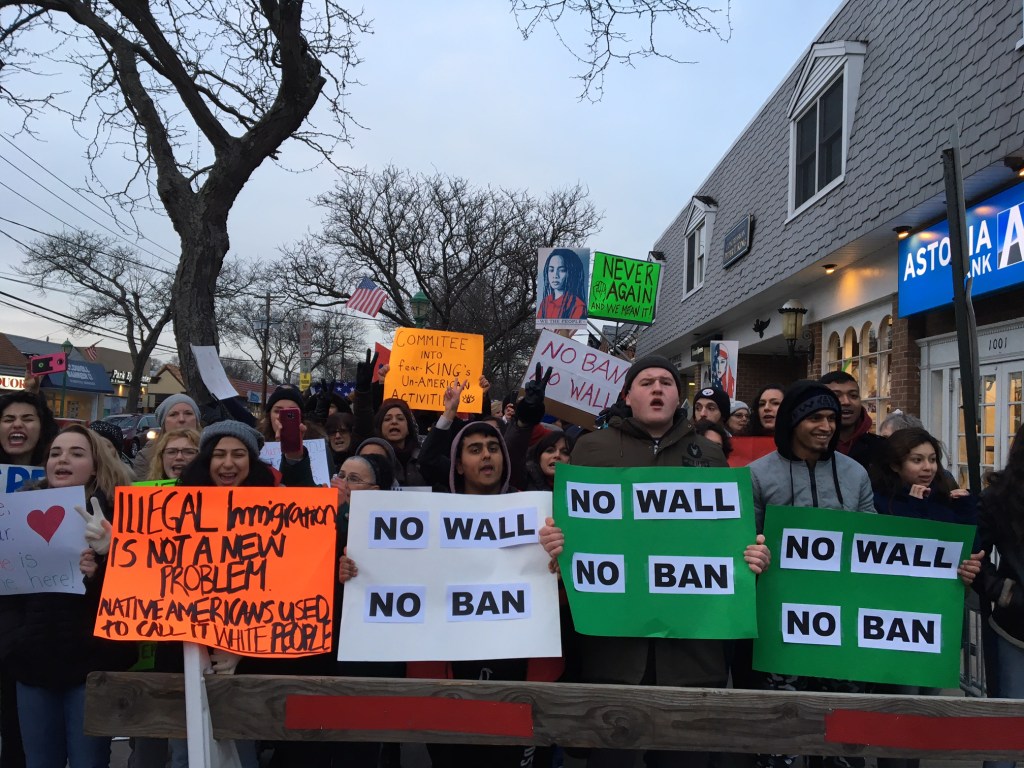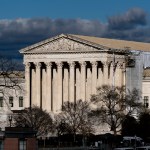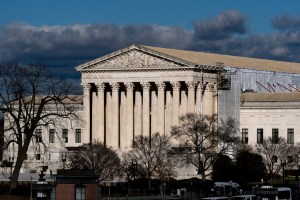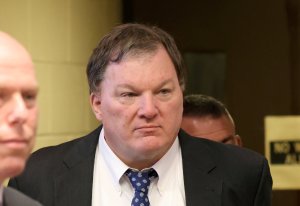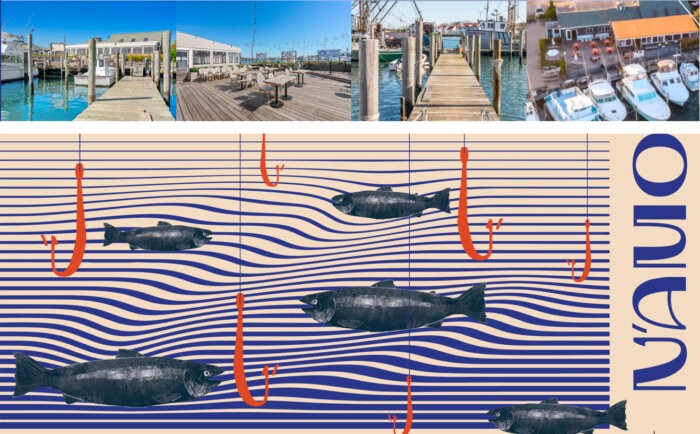By Christopher Twarowski and Rashed Mian
A federal appeals court in San Francisco announced Thursday night it will not reinstate a controversial immigration ban imposed by President Donald Trump indefinitely blocking Syrian refugees and temporarily halting travelers from seven predominantly Muslim countries from entering the United States.
The unanimous decision by a three-judge panel, a stunning blow to the Trump administration, comes three days after Ninth Circuit appellate judges heard arguments in the case–deliberations sparked by a suit challenging the ban’s constitutionality and legality, along with its temporary halt, by Washington State Attorney General Bob Ferguson last Friday. That legal action was preceded by emergency stays on ban-related deportations issued by federal judges in Brooklyn and Virginia instigated by a successful challenge by the American Civil Liberties Union (ACLU).
The government, arguing the ban is necessary to protect the United States against terrorists, sought an emergency stay of that order while the aforementioned challenges were appealed.
President Trump took to Twitter almost immediately following Thursday night’s appellate decision, writing in all-capital letters:
“SEE YOU IN COURT, THE SECURITY OF OUR NATION IS AT STAKE!”
SEE YOU IN COURT, THE SECURITY OF OUR NATION IS AT STAKE!
— Donald J. Trump (@realDonaldTrump) February 9, 2017
Opponents of the immigration ban likewise took to social media to praise the decision.
The 9th circuit's decision to refuse to reinstate the #MuslimBan was unanimous#NoBanNoWall #WAvTrump https://t.co/4o4873Lyyf
— ACLU (@ACLU) February 9, 2017
#CAIR Applauds Appeals Court’s Ruling Against Trump’s ‘#MuslimBan’ Executive Order
(WASHINGTON, D.C., 2/9/17) –… https://t.co/HqvxQfsuHP
— CAIR National (@CAIRNational) February 10, 2017
To rule on the government’s motion, the Ninth Circuit Court of Appeals’ order states, it considered several factors, including “whether the Government has shown that it is likely to succeed on the merits of its appeal, the degree of hardship caused by a stay or its denial, and the public interest in granting or denying a stay.”
“We assess those factors in light of the limited evidence put forward by both parties at this very preliminary stage and are mindful that our analysis of the hardships and public interest in this case involves particularly sensitive and weighty concerns on both sides,” the order continues. “Nevertheless, we hold that the Government has not shown a likelihood of success on the merits of its appeal, nor has it shown that failure to enter a stay would cause irreparable injury, and we therefore deny its emergency motion for a stay.”
According to the Ninth Circuit’s order on Thursday, Washington alleged that Trump’s executive mandate “unconstitutionally and illegally stranded its residents abroad, split their families, restricted their travel, and damaged the State’s economy and public universities in violation of the First and Fifth Amendments, the INA, the Foreign Affairs Reform and Restructuring Act, the Religious Freedom Restoration Act, and the Administrative Procedure Act.”
Additionally, “that the Executive Order was not truly meant to protect against terror attacks by foreign nationals but rather was intended to enact a ‘Muslim ban’ as the President had stated during his presidential campaign that he would do.”
The Ninth Circuit’s decision Thursday also details the government’s arguments for the ban, outlining the reasoning behind President Trump’s executive order, formally titled “Executive Order 13769, ‘Protecting the Nation From Foreign Terrorist Entry Into the United States’:
“Citing the terrorist attacks of September 11, 2001, and stating that ‘numerous foreign-born individuals have been convicted or implicated in terrorism related crimes’ since then, the Executive Order declares that ‘the United States must ensure that those admitted to this country do not bear hostile attitudes toward it and its founding principles.’ It asserts, ‘Deteriorating conditions in certain countries due to war, strife, disaster, and civil unrest increase the likelihood that terrorists will use any means possible to enter the United States. The United States must be vigilant during the visa-issuance process to ensure that those approved for admission do not intend to harm Americans and that they have no ties to terrorism.'”
Denounced as a “Muslim Ban” by critics including immigration, civil liberties and human rights groups due to its targeting of Muslim-centric nations–Iraq, Iran, Libya, Somalia, Sudan, Syria and Yemen–exemptions for other religious minorities, including Christians, and the president’s own comments along the campaign trail, Trump authorized the mandates on Friday, Jan. 27 through executive order.
Hundreds of travelers were detained at airports across the country as a result, including non-U.S. citizens on student visas or green card holders, igniting a firestorm of criticism characterized by mass protests at airports nationwide and overseas, as well as subsequent marches and demonstrations against the ban on a near-daily basis ever since.
Others challenging Trump’s immigration policies in court include New York State Attorney General Eric Schneiderman’s office and Muslim civil rights and advocacy group the Council on American-Islamic Relations (CAIR). The two issued the following statements following Thursday’s appellate court decision:
“Today’s decision by the Ninth Circuit is a major victory for the rule of law and the fundamental American principle that no president is above the constitution,” said Schneiderman. “As my colleagues and I have argued in courts across the country, President Trump’s executive order is an unconstitutional exercise of authority that unlawfully discriminates against millions of people based on their religion. State attorneys general have been leading the fight against President Trump’s order on behalf of the many universities, hospitals, businesses, and residents harmed by it, and today the Ninth Circuit affirmed the critical role we play.”
“We applaud this ruling as a reaffirmation of the strength and independence of our system of justice,” said CAIR National Executive Director Nihad Awad. “This decision adds to the long list of federal judges–both Republican and Democratic appointees–who found reason to block this discriminatory order.
“While this decision is critical, it is not the end of the legal process,” he continued. “Other courts across the country will be passing judgment on this order, and the U.S. Supreme Court will likely weigh in at some point… This victory should not lead to complacency. This and other Trump administration orders and policies still pose a threat to communities of color, religious minorities, women, and others.”
Last Thursday, about 100 protestors rallied outside U.S. Sen. Chuck Schumer’s Melville office to urge the Democrat to oppose Trump’s recent Cabinet nominees and to fight against the controversial immigration policy.
The following day, hundreds marched outside the Massapequa Park office of Rep. Peter King (R-Seaford) in protest of the congressman’s purported role helping craft the president’s executive order authorizing the ban. King subsequently denied having any part, though was specifically named by Trump confidante former New York City Mayor Rudy Giuliani during a recent interview on Fox News on the ban’s genesis.
When former prosecutor Jeanine Pirro asked Giuliani in that segment whether the ban had anything to do with religion, and how Team Trump decided upon those particular Muslim countries, the unsuccessful 2008 Republican presidential candidate responded:
“I’ll tell you the whole history of it. So when he first announced it he said, ‘Muslim ban.’ He called me up and said, ‘Put a commission together, show me the right way to do it legally.’ I put a commission together with Judge Mukasey, with Congressman McCaul, Pete King, a whole group of other very expert lawyers on this. And what we did was we focused on, instead of religion, danger. The areas of the world that create danger for us. Which is a factual basis. Not a religious basis. Perfectly legal, perfectly sensible, and that’s what the ban is based on. It’s not based on religion. It’s based on places where there are substantial evidence that people are sending terrorists into our country.”
In upholding the suspension of the president’s travel ban, the Ninth Circuit’s decision in State of Washington v. Trump Thursday may set the stage for a review before the Supreme Court.



